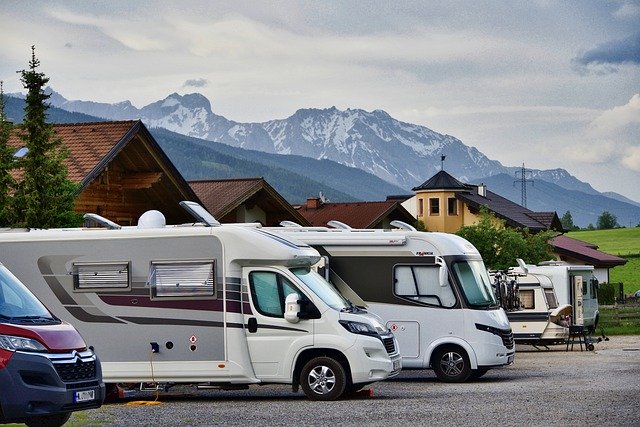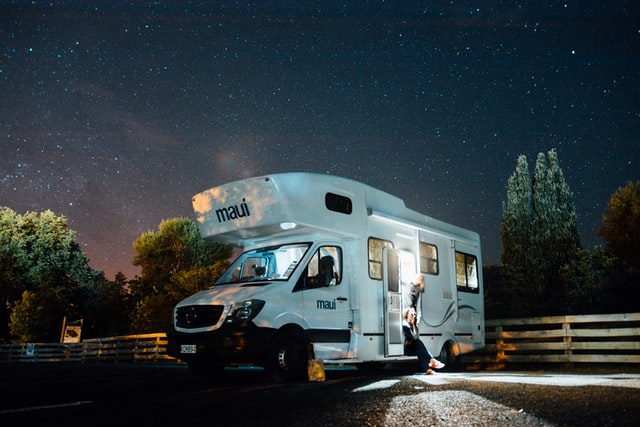
RV’s NEW OR USED
cannon
- 0
Buying your first recreational vehicle is a considerable investment. It’s something that can easily cost twice as much or more than a truck or car. It should also provide years of enjoyment for you and your family members and friends, so it’s not a decision that should be taken lightly.
Here are a few pros and cons of buying a new or used RV:
Purchasing a new recreational vehicle
Pros:
1. You can buy the exact vehicle that you’re looking for. If you can afford to buy a new RV, the sky’s the limit! You’ll have your pick of the top of the line model that you want. There are all kinds of sizes, manufacturers, and convenient features.
2. The manufacturer’s warranty has you covered during your first few years of ownership.
Most new recreational vehicles come with a manufacturer’s warranty that is valid for two to three years. However, some models have a manufacturer’s warranty that is only good for one year. Take some time to do your research to understand the warranty length and coverage terms for each RV that you are considering.
3. The vehicle has no previous owners.
One of the best advantages of buying a new RV is that you’re the original owner! There are no prior owners to worry about, and no previous maintenance or repair issues.
Cons:
1. It can be expensive.
New recreational vehicles can run anywhere from around $50,000 to $200,000 or more depending on the particular make, model, floor plan, size, and features. This is why RV buyers sometimes wait months or even years to make a purchase.
2. You may also have to pay higher insurance premiums on the vehicle.
Newer vehicles are also usually more expensive to insure. Full-time recreational vehicle owners typically pay around $1500 annually for insurance. Costs will vary according to the type of coverage and type of vehicle. Class C recreational vehicle insurance can be around $1000 or less, while insurance for class A vehicles can easily run $2000 or more. Feel free to get a few quotes before you buy it. You may be able to bundle your existing coverage with your current insurance company and receive a discount on your RV insurance.
3. Newer vehicles tend to depreciate faster.
Almost all new vehicles start depreciating in value as soon as they’re driven off the lot. They are important items that gradually wear down after time and enough repeated use. Keeping your RV in good condition and limiting the number of miles that you put on it annually can help to reduce the vehicle’s depreciation year over year.
Purchasing a used recreational vehicle
Pros
1. It’s often a more affordable acquisition.
The biggest advantage of buying a used recreational vehicle is that they’re much more affordable than new models. You can expect to pay about half the price of new RVs or less. It all depends on the age, size, and condition of the vehicle.
2. You could buy the vehicle from a third party or private sale.
You may be able to get a good deal buying your RV from a private sale or third party. There’s no middleman and no markup cost to worry about. You might even get your ideal recreational vehicle if the seller is motivated and needs to sell their RV quickly.
3. There’s less depreciation.
Used RVs generally have less depreciation the older they are. Most of the depreciation occurs during the first five years or less of the vehicle’s usage life. This will differ according to the recreational vehicle’s condition and whether or not regular maintenance was performed.
Cons
1. You may not know about problems that the vehicle may have. before you buy it. RV owners aren’t required to disclose problems, liens against the vehicle, or other issues that could otherwise affect your buying decision. Ask as many questions about the vehicle’s condition as possible before making any sort of agreement. You may want to ask the owner if you can have a reliable mechanic personally inspect the vehicle, if possible.
2. There are fewer models to choose from.
Sometimes the selection of used RVs is less than spectacular. Most RVs will last between ten and twenty years on average. That’s why their owners usually hold onto them longer than their cars, trucks, boats or other vehicles. This makes it more difficult and time-consuming to find the recreational vehicle that you really want.
3. You don’t know what the previous owners may have done to the vehicle.
RV owners don’t have to let prospective buyers know about any additions or modifications that they’ve made to their vehicles. This can be an issue at times, especially if those changes were made hastily or if they impact the vehicle’s performance. You can ask the owner if any modification has been made and inspect the vehicle yourself if you’re concerned about them.
These are just some of the most important considerations to keep in mind. Once you know what you want, it’s time to start saving right away if you can’t afford to buy your recreational vehicle outright. Set aside money for the purchase from each paycheck and set a target date or month when you can purchase it.
Owning a recreational vehicle is a great way to see more of the country. It’s also a great way to share amazing experiences and create lasting memories with the people who matter most. An RV will need to be properly maintained just like any other vehicle on the road. Adhere to a regular maintenance schedule and keep a checklist of what needs to be done so that nothing is overlooked. Once you fully understand all of the responsibilities involved in becoming a recreational vehicle and have purchased the vehicle that you want, you can successfully venture out on the open highways living life to the fullest.
Related
Post Disclaimer
The information contained in this post is for general information purposes only. The information is provided by me and while we endeavor to keep the information up to date and correct, we make no representations or warranties of any kind, express or implied, about the completeness, accuracy, reliability, suitability or availability with respect to the website or the information, products, services, or related graphics contained on the post for any purpose.
